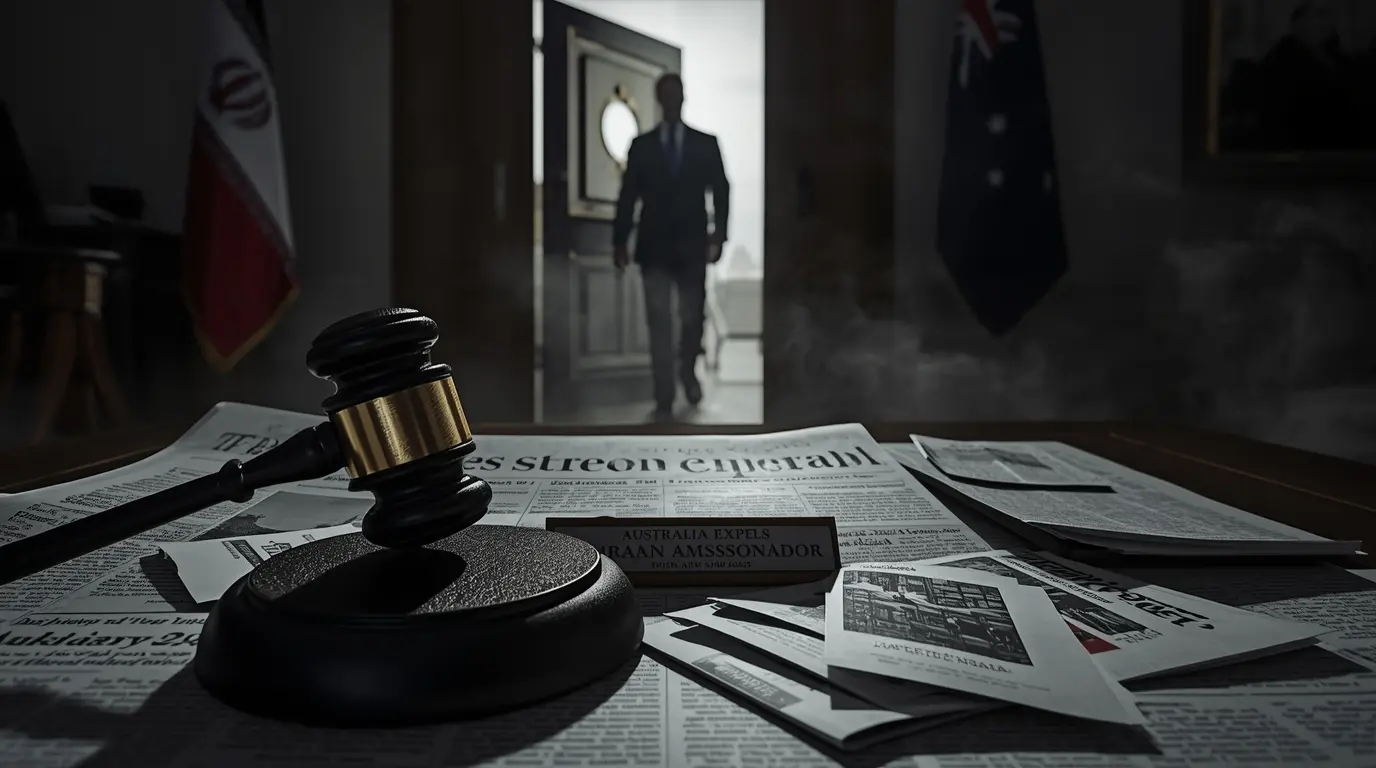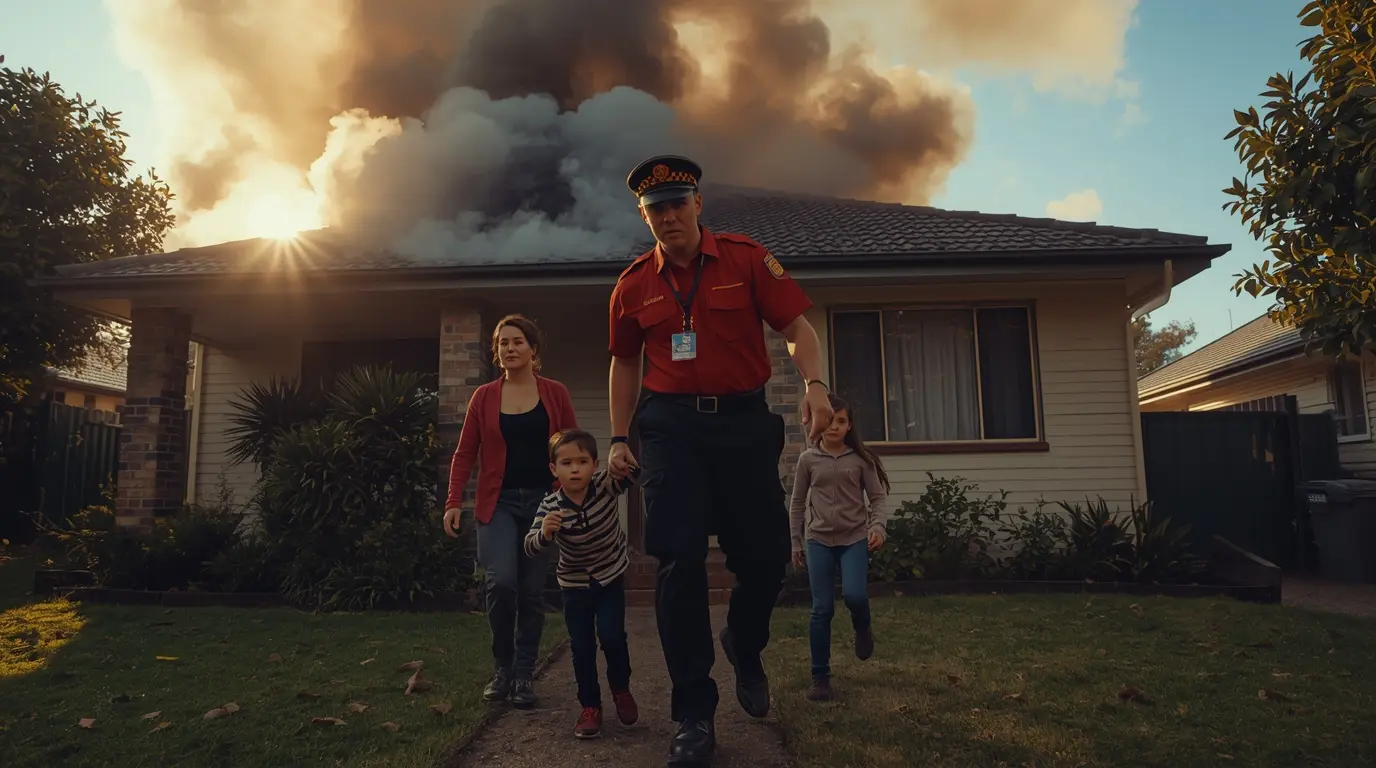Australia has sent a strong message to Iran by expelling its Iranian ambassador, Ahmad Sadeghi, and severing diplomatic ties completely. The Prime Minister, Anthony Albanese, made the announcement on August 26, 2025, pointing to “credible intelligence” which states that Iran was behind a pair of antisemitic arson attacks here in Australia. This is the first ambassador expulsion of its kind since World War II, underscoring how serious the threat is.
The Attacks: Unraveling Iran’s Role
Australia’s Security Intelligence Organisation (ASIO) states that Iran coordinated fires at two Jewish establishments: the Lewis’ Continental Kitchen in Sydney on October 20, 2024, and the Adass Israel Synagogue in Melbourne on December 6, 2024. Both incidents involved arson and resulted in major damage, yet thankfully no injuries. ASIO Director Mike Burgess explained that the Islamic Revolutionary Guard Corps (IRGC) ran the operations through “proxies” and “cut-outs” to mask the link. While the Iranian ambassador and his staff did not carry out the attacks, they are viewed as officials of a government that approved the violence.
Australia’s Response: Expulsion and IRGC Designation
The Australian government’s reaction to recent events has been quick and layered:
Expulsion of the Iranian Ambassador: The Iranian ambassador and three other diplomats were declared persona non grata and given one week to depart Australia. This action underscores the country’s strict no-interference stance toward any foreign government.
Suspension of Embassy Operations: Australia has temporarily closed its embassy in Tehran. All diplomats have been moved to a third nation to ensure their safety. Foreign Minister Penny Wong has advised Australian nationals in Iran to leave now because consular services there are severely limited.
IRGC Listed as a Terrorist Organization: The government plans to pass legislation officially naming the Islamic Revolutionary Guard Corps a terrorist entity. This move has long been sought by both the Israeli government and the Australian Jewish community. The designation is designed to restrict the IRGC’s capacity to operate secretly within Australia’s borders.
Global and Domestic Context
The Iranian ambassador’s expulsion happens in the shadow of rising tensions since the Israel-Hamas conflict erupted in October 2023. Reports indicate a noticeable spike in antisemitic incidents across Australia. Homes, schools, and synagogues have been vandalized and attacked. ASIO has pointed out, however, that not every such incident is traced back to Iranian networks. The agency is also following leads on other potential attacks that may involve Iranian operatives.
The expulsion of the Iranian ambassador, announced against a backdrop of worsening Canberra-Tehran ties, also relates to Australia’s broader foreign policy choices. Canberra’s recent promise to officially recognize a Palestinian state generated swift and pointed backlash from Israeli Prime Minister Benjamin Netanyahu, making the timing of the ambassador’s departure read, in part, as a calculated political repositioning. Analysts might label it a balancing maneuver: managing domestic security expectations while only inching away from regional entanglements.
The move, however, is more about security than optics. Prime Minister Albanese claimed “extraordinary and dangerous aggression perpetrated by a foreign state on Australian soil” justified the Iranian ambassador’s sudden departure. Diplomatic sources report that the expelled ambassador allegedly oversaw surveillance of dissidents in Sydney and Melbourne. By expelling him, Australia re-asserts a clear, if more pronounced, threshold: state-backed violence, of any measure, will meet an immediate and unfriendly response.
To some, the Iranian ambassador’s summation as “persona non grata” sealed the curtain. The Australian Foreign Office would add only that it had “taken the only action available and appropriate at this juncture.” Yet Foreign Minister Penny Wong’s comment that Australia would “keep some diplomatic lines of communication open” offers a more measured reading. The Iranian political establishment remains sensitive to hostage and hostage-travel concerns, while Canberra continues to negotiate arrangements for Australians in Iran from the Australian “Watching” space—the middle, some officials would argue, is still better than a space of no visibility.
Community and Ally Feedback
Jewish leaders offered mixed reactions. Daniel Aghion, head of the Executive Council of Australian Jewry, said the investigation is comforting, yet troubling because it shows how a “callous and calculated” assault aimed at the Jewish people came from a “ruthless foreign force”. The Israeli embassy in Australia voiced support for the Australian designation of the IRGC, labeling Iran a menace to the “whole free world”.
Moving Forward
The decision to kick out the Iranian ambassador marks a watershed in Australia’s national security. It warns of rising foreign meddling and underscores the need for sharper intel assets. ASIO’s probes into any fresh Iranian-linked plots will keep the focus on how official Canberra balances diplomacy and security for the long haul.
At present the Iranian ambassador’s removal shows that countries must protect their sovereignty from hostile foreign agents. How Tehran reacts to Australia’s action will interest global observers, and its response may influence allies weighing similar measures.
Source: https://edition.cnn.com/2025/08/26/australia/australia-iran-antisemitic-attacks-intl-hnk
For more incredible stories of everyday news, return to our homepage.





